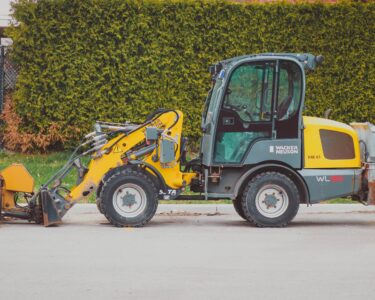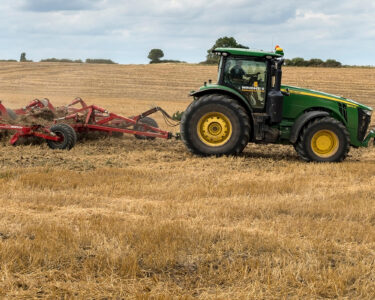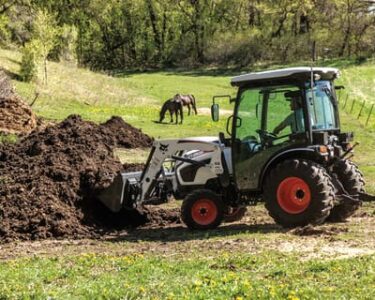Your tractor is the workhorse of your farm, and it’s essential to keep it in peak condition for optimal performance and longevity. Regular maintenance is the key to ensuring that your tractor continues to serve you well. In this article, we’ll provide you with a comprehensive guide on essential maintenance tips to keep your tractor in top shape.
Regular Fluid Checks
Fluids are the lifeblood of your tractor, and maintaining the correct levels is vital for its performance. Regularly check and change the following fluids:
Engine Oil
- Check the engine oil level regularly and change it at the recommended intervals as per the manufacturer’s guidelines. Clean oil is essential for engine longevity.
Hydraulic Fluid
- Ensure the hydraulic fluid is at the correct level and replace it according to the maintenance schedule. Proper hydraulic function is critical for various tractor operations.
Coolant
- Keep an eye on the coolant level and ensure it’s the right mix of water and coolant. Overheating can lead to severe engine damage.
Inspect and Maintain Filters
Filters in your tractor, such as air, fuel, and hydraulic filters, play a crucial role in keeping contaminants out of the engine and hydraulic system. Regularly inspect and replace filters when needed:
Air Filter
- A clean air filter ensures that clean air is entering the engine. Dirty air filters can reduce engine efficiency and power.
Fuel Filter
- A clogged fuel filter can lead to fuel flow problems and engine issues. Replace it as recommended.
Hydraulic Filter
- Proper hydraulic system function depends on a clean hydraulic filter. Replace it according to the manufacturer’s guidelines.
Lubricate Moving Parts
Your tractor has numerous moving parts that require proper lubrication to prevent wear and tear. Regularly lubricate:
Bearings and Joints
- Grease bearings and joints to reduce friction and prevent premature wear.
Linkages and Pivot Points
- Keep linkages and pivot points well-lubricated to maintain smooth operation.
Check Electrical Systems
A well-functioning electrical system is essential for starting and operating your tractor. Regularly inspect and maintain:
Battery
- Ensure the battery is in good condition, clean terminals, and secure connections.
Wiring and Connections
- Check for loose or damaged wires and connections. Electrical issues can lead to starting problems.
Inspect Tires and Wheels
Your tractor’s tires and wheels are crucial for stability and traction. Regularly inspect and maintain them:
Tire Pressure
- Maintain the correct tire pressure to ensure proper traction and reduce soil compaction.
Tire Tread
- Inspect tire treads for wear and replace tires when the tread depth becomes insufficient.
Keep It Clean
A clean tractor not only looks better but also performs better. Regularly clean your tractor to:
Prevent Corrosion
- Dirt and moisture can lead to corrosion, so clean your tractor regularly to keep it in good condition.
Maintain Paint
- A well-maintained paint job can help protect against rust and keep your tractor looking its best.
Conclusion
Your tractor is a valuable asset, and taking care of it through regular maintenance is an investment in its longevity and performance. By following these maintenance tips, you can ensure that your tractor remains in top shape, ready to tackle the demands of your farm for years to come.
FAQs
Q1. How often should I change the engine oil in my tractor?
A1. The frequency of engine oil changes depends on the manufacturer’s recommendations and usage. Typically, it’s advisable to change the engine oil every 100 to 200 hours of operation or as per the manufacturer’s guidelines.
Q2. Can I perform tractor maintenance myself, or should I hire a professional?
A2. Many tractor maintenance tasks can be performed by owners with some mechanical aptitude. However, for complex repairs and services, it’s often best to consult with a professional tractor mechanic or service center.
Q3. What should I do if I notice unusual sounds or performance issues with my tractor?
A3. If you notice any unusual sounds or performance issues with your tractor, it’s best to stop using it immediately and have it inspected by a qualified mechanic. Ignoring problems can lead to more extensive and costly repairs.
Q4. Is there a specific checklist I can follow for tractor maintenance?
A4. Yes, many tractor manufacturers provide maintenance checklists in the owner’s manual. These checklists detail the recommended maintenance tasks and their intervals for your specific tractor model.



